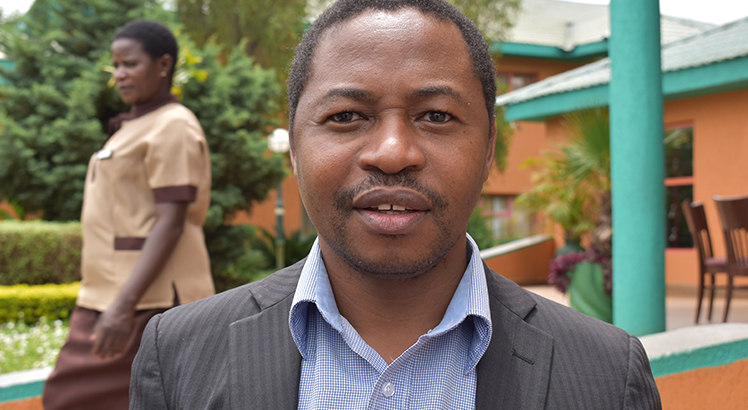‘Chitu-leku’ slackening fight against graft
Malawi continues to slacken in the fight against corruption with the 2022 Corruption Perceptions Index (CPI) by Transparency International rating the country at 34 points out of 100. Political scientist and governance expert Henry Chingaipe, who is also director of the Institute for Policy Research and Social Empowerment, attributes this to the inability by Parliament to use its powers to addressing corruption, leading to chitu-leku syndrome or false starts. Nation Publications Limited journalist PRECIOUS KUMBANI caught up with Chingaipe to shed more light on the matter. Excerpts:

How do you define the state of corruption in Malawi?
For CPI, our best score has been 37 out of 100. [This is] a clear failing mark that cannot even attract a compensatory pass or the primary school ‘may try the next class’ recommendation. For all the world governance index, our country’s scores are consistently in the negative region, fluctuating in it. This means that our best efforts are not enough and we need new ways of doing things to get better results.
Where are we getting it wrong?
Despite big anti-corruption statements and hype from big people at the big podia at different points in time, our best effort at controlling corruption since 2010 was registered in 2021 at (-0.32), but could not be sustained and slumped to (-0.62) by 2022. Our national efforts to fight corruption display a pattern of a phenomenon that the former Speaker of Parliament Louis Chimango described as chitu-leku syndrome where we never see the mission making progress. Too many false starts.
A British scholar and a keen observer of Malawi’s anti-corruption campaigns, David Hall-Mathews, provided a hypothesis of the chitu-leku syndrome. He said the way the anti-corruption campaign has been executed over the years is less about fighting corruption and more about tackling political opponents and tickling donors.
So, how would Parliament come in to resolve these challenges?
Parliament has the mandate to make laws, to review or order a review of laws. It has the power to make detailed regulations and a wide mandate for oversight, including parliamentary investigations through appropriate committees. Parliament also receives reports of oversight institutions and has the right to ask oral and written questions on any subject matter. Therefore, it must deploy these powers and employ parliamentary strategies and mechanisms to address corruption.
Why is it difficult for Parliament to effectively achieve its mandate in the corruption fight?
This is because it mostly waits upon the Executive branch for legislative proposals and hurries through legislation without sufficient attention to corruption, risks and bias. Inadequate skills for effective parliamentary investigations among parliamentarians, insufficient ‘sitting time’ and resources to consider reports of oversight institutions, elusive or untenable conclusions from parliamentary processes, recommendations without guarantee of uptake or accountability and partisan narrow interests also affect its output in as far as the fight against corruption is concerned.
How would Parliament uphold its mandate in the corruption fight?
It needs to develop a programme of work for each of the five roles of Parliament in anti-corruption [fight]. Work package must include review of specific statutes and regulations related to the core public sector institutions, improve parliamentary consideration and uptake of reports of oversight institutions, identifying corruption high-risk areas, sectors or services and intensify parliamentary oversight work on them. [It needs] to do everything possible to ensure that the anti-corruption strategy tackles corruption, not political opponents. This will excite Malawians more than donors.
What does the Malawian public say about corruption that members of Parliament (MPs) should consider?
According to the Afrobarometer, about 47 percent believe that reporting corruption is unlikely to get acted on by duty-bearers. Many people fear to report corruption because of possible retaliation or reprisals. On average, between 2003 and 2022, 82.9 percent of citizens believed that MPs were involved in corruption. The highest proportion being recorded for the 2019-2025 Parliament was 90.6 percent in 2022. This means that many decisions that come from Parliament are quickly seen as encapsulating schemes for malfeasance. However, we have seen public demand for better and effective legal frameworks for the prevention, investigation and punishing of corruption perpetrators.
Although a majority of Malawians believe that many MPs are involved in corruption, they also express trust in Parliament as an institution. Between 2003 and 2022, the highest proportion of Malawians with trust in Parliament was registered in 2012 at 87.3 percent, but averaged at 76.5 percent for the period. The high level of trust is a good springboard for a renewed parliamentary anti-corruption effort.





